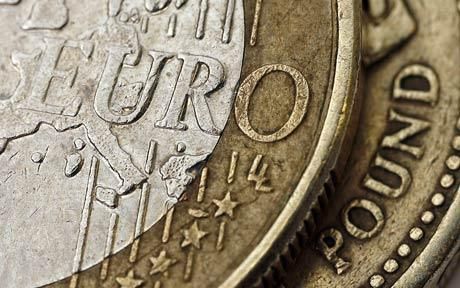
THE TELEGRAPH: This financial crisis is worse than the sub-prime crash of 2008 because the sums are so much bigger and it is governments that are in dire straits. Edmund Conway explains the dangers.
Mervyn King, the Bank of England Governor, summed it up best: "Dealing with a banking crisis was difficult enough," he said the other week, "but at least there were public-sector balance sheets on to which the problems could be moved. Once you move into sovereign debt, there is no answer; there's no backstop."
In other words, were this a computer game, the politicians would be down to their last life. Any mistake now and it really is Game Over. Or to pick a slightly more traditional game, it is rather like a session of pass-the-parcel which is fast approaching the end of the line.
The European financial crisis may look and smell rather different to the American banking crisis of a couple of years ago, but strip away the details – the breakdown of the euro, the crumbling of the Spanish banking system to take just two – and what you are left with is the next leg of a global financial crisis. Politicians temporarily "solved" the sub-prime crisis of 2007 and 2008 by nationalising billions of pounds' worth of bank debt. While this helped reinject a little confidence into markets, the real upshot was merely to transfer that debt on to public-sector balance sheets.
This kind of card-shuffle trick has a long-established pedigree: after the dotcom bust, Alan Greenspan slashed US interest rates to (then) unprecedented lows, which helped dull the pain, but only at the cost of generating the housing bubble that fed sub-prime. It is not so different to the Ponzi scheme carried out by Bernard Madoff, except that unlike his hedge fund fraud, this one is being carried out in full public view.
The problem is that this has to stop somewhere, and that gasping noise over the past couple of weeks is the sound of millions of investors realising, all at once, that the music might have stopped. Having leapt back into the market in 2009 and fuelled the biggest stock-market leap since the recovery from the Wall Street Crash in the early 1930s, investors have suddenly deserted. London's FTSE 100 has lost 15 per cent of its value in little more than a month. The mayhem on European bourses is even worse, while on Wall Street the Dow Jones teeters on the brink of the talismanic 10,000 level.
Whatever yardstick you care to choose – share-price moves, the rates at which banks lend to each other, measures of volatility – we are now in a similar position to 2008. >>> Edmund Conway | Thursday, May 27, 2010